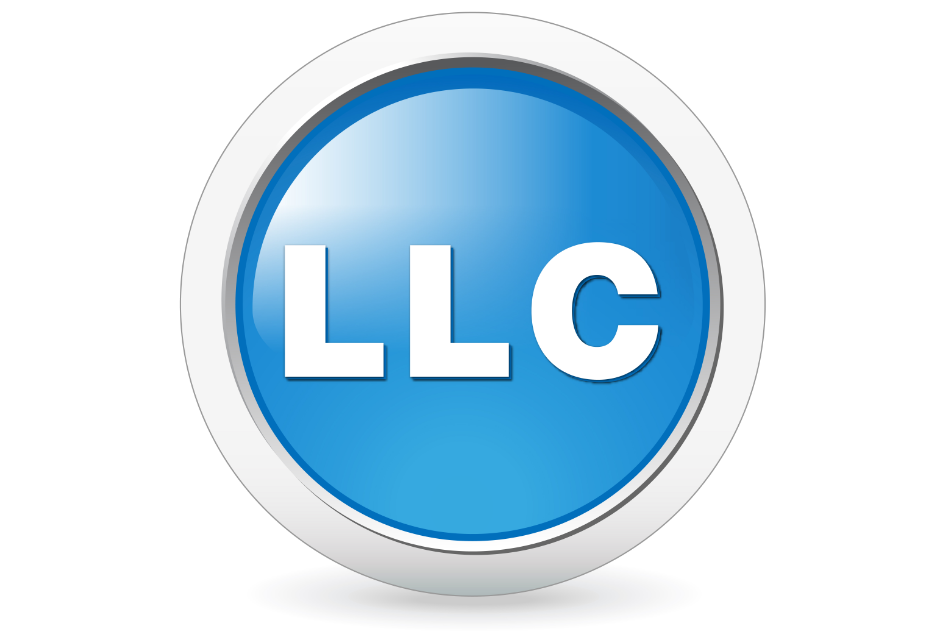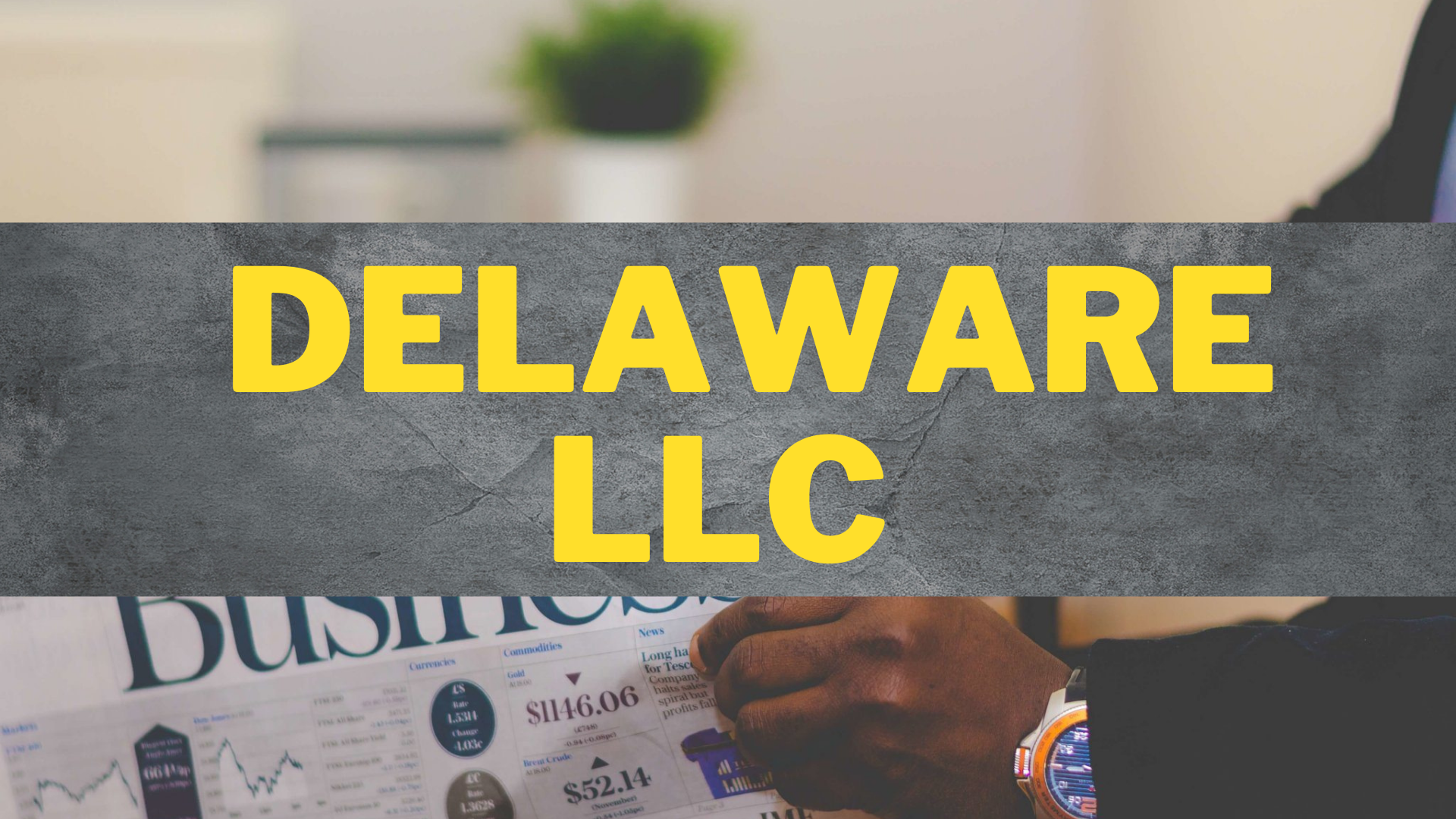Limited liability companies or LLCs are relatively new to the world of business entities. It is designed as a hybrid of corporations and general partnerships; they’ve quickly become the business entity of choice for millions of American businesses. Hence, in Delaware, there are many companies that are excited about LLC.

If you are one too or simply want to learn about Delaware LLC, this article is all you need. We will not only discuss the advantages or disadvantages of LLC in Delaware but help you understand how to go about it.
This article covers the following:
- What is Delaware LLC?
- What are the advantages of Delaware of LLC?
- What are the disadvantages of Delaware of LLC?
- How to file for Delaware LLC?
- FAQs on Delaware LLC
- How can Deskera assist you?
- Key takeaways
What is Delaware LLC?
The Delaware limited liability company (“LLC”) is a type of business entity created and regulated under the Delaware LLC Act. A DLLC may engage in virtually any lawful business activity, including manufacturing, services, holding and developing real estate, holding and managing intangible property such as securities and other investments, and acting as a special-purpose entity in financing transactions.
The first Delaware LLC was formed in 1992. However, it is now the most popular business entity formed or incorporated in Delaware. According to the Delaware Division of Corporations, more than 70 percent of new businesses formed in the state of Delaware in 2014 were LLCs.
You can form a Delaware LLC no matter where your business activities take place, or where you live in the United States. Most countries allow individuals to use a Delaware LLC as well.
Advantages of Delaware LLC
The principal advantages of a DLLC are avoidance of double income taxation, unmatched contractual flexibility, and, of course, limited liability. A DLLC may be structured in virtually any manner that best suits the business needs of the parties.
This flexibility can make the DLLC preferable to the traditional corporation and, in many cases, to other alternative business entities such as limited partnerships or general partnerships.
Business Structure & Rules
The structure of the company and the rules that govern the members of the company are contained in a contract called the LLC Operating Agreement, which the members of the LLC draft.
This means the terms and rules of each LLC can be tailored to accommodate the specific needs and preferences of an LLC. This power, called the freedom of contract, is the biggest benefit of an LLC over any other form of business entity.
Asset Protection
Delaware LLCs possess increased asset protection against creditors. This means that if a member of an LLC has a judgment filed against him/her, a creditor cannot attack the LLC nor acquire any portion of the LLC's assets. This benefit protects everyone in the company.
Statutory Limitation on Member Personal Liability
A statutory limitation on the personal liability of the members of an LLC means that members are not held liable for repayment if an LLC fails and leaves behind debt. The most money a member of an LLC can lose by virtue of the LLC's failure is the dollar amount the member had invested in the LLC.
Beneficial Tax Treatment
When an LLC is formed, the owners can choose whether they want the LLC to be taxed as a partnership, an S corporation, a C corporation, or a sole proprietorship. Single-member LLCs are not recognized by the IRS and therefore pay no taxes at all. Instead, the tax liability is passed through to the member. This tax treatment is part of the reason why Delaware LLC costs are quite reasonable.
Start Your Business With Minimum Requirements
Just by the thought of starting a business, you often think about the long process that it takes. But it's not the same in Delaware LLC. Only a little information is required to form an LLC in Delaware, and start-up involves only a small filing fee. Additionally, there are no meetings or voting requirements.
Easy Maintenance & Low Annual Fees
Delaware LLC costs are simple and inexpensive. Once a year, a simple form and an annual Franchise Tax Fee of $300 must be filed with the Delaware Secretary of State. Additionally, a Registered Agent Fee must be paid annually, as all Delaware LLCs are required by law to have a Registered Agent accept the service of process.
Quicker Filing Speeds for Tax Reporting
In Delaware, a tax filing for an LLC can be guaranteed to be processed in less than an hour, allowing the corporation to move forward with other business matters.
Other states offer an expedited system for filing, though most require a minimum of 24 hours before the filing will be accepted. There may be added fees for the expedited service beyond the fees charged for rush processing in Delaware.
Delaware Privacy
Another advantage of Delaware LLCs is that you are not required to disclose any information about the owner of an LLC to the state of Delaware or Harvard Business Services, Inc. to form or maintain an LLC.
Not all states protect your identity like this, so this is a frequent reason to form an LLC in Delaware. Unlike many other states, you are required only to have a designated contact person and a Delaware Registered Agent.
Shareholder Tax Advantages
There are tax advantages for shareholders in a Delaware business, which is why investors prefer incorporation within the state compared to others. Any stock shares that individuals own outside of the state are not subject to Delaware’s taxes. Non-residents do not pay a personal income tax either.
More Investor Interest
Most venture capitalists and angels looking to invest in a new company prefer those incorporated in Delaware. That is because of all the advantages offered by this registration compared to the other states.
Although it may be more expensive for a small business to maintain a dual registration if they are out-of-state, the potential for higher levels of investment may offset that potential disadvantage. It’s usually easier to incorporate upon formation rather than trying to convert to a new LLC when you’ve attracted the attention of a large investor.
Disadvantages of Delaware LLC
There are two sides to every coin, if there are advantages there are disadvantages too. Here is a list of disadvantages too.
It requires dual registration for out-of-state LLCs
It is not beneficial for small businesses to incorporate their LLCs in another state because it requires a dual registration. You would be incorporating in Delaware, but you would also be incorporating in your state of residence.
That means you’d be forced to create two reports each year on the status of your business. There would be two state tax returns to file. You’d also be required to pay for two sets of filing fees to incorporate and renew over each period.
Legal Representation
If you have an attorney for your business, then they must be able to conduct business in Delaware and your home state to provide you with the representation required.
Most attorneys are only licensed in the state where they are doing business. That means you face the cost of paying for your attorney to become licensed in another state or the cost of bringing another attorney in on retainer.
Maintaining Registered Agent
If your LLC is based in a state outside of Delaware, then you’ll be required to maintain a registered agent in that state. You would also be required to maintain a registered agent within Delaware to maintain the dual registration.
That means you must have someone with a business address in each state that can be contacted for business purposes. Registered agents are responsible for the receipt of legal documents, which means more costs for the business.As a consequence, hiring the finest registered agent will save you a lot of time and prevent you from having difficulties with your business that might lead to costly penalties from the government.
Does Not Offer Flat Franchise Tax
The franchise taxes in Delaware are based on the actual value of the shares of the corporation instead of revenues, sales, or a flat fee based on the classification of the business.
The minimum tax is $75 per year, with a $50 filing fee. The maximum franchise tax is $180,000. Although the series LLC only pays this once for each entity, the costs can be high to a business with a strong share valuation but limited cash flow.
Might Trigger Foreign Qualification Cost
Doing business outside of a home state may trigger foreign qualifications for a Delaware LLC. You’ll need to talk with your home state to determine what documents are required from Delaware should this be required. Processing times for applying for this qualification can be as much as ten business days, which can extend the start-up time for the company.
Higher Incorporation Filing Costs
The costs of incorporating in Delaware are rather low compared to other states, though they may be higher than what some may face locally. The state filing fee for the LLC is just $90.
For an extra 10%, the certificate can be filed within 24 hours. Certified copies of the LLC filing, which cost $50 through the state, are often required to open a business account. There are fees for a Certificate of Good Standing as well.
Complicates Litigation
Even if you have a solid legal contract in place to deal with litigation, because you would be maintaining a Delaware LLC and one that is out-of-state, your business may be forced to follow the laws of both states when a resolution is applied to the situation.
That may be advantageous in certain situations, but for the average small business, the added complications create added costs and potential risks, which creates a disadvantage.
Difficulty in Obtaining Identification Numbers
The structure of a Delaware LLC can be unique if the series option is chosen; the separate entities within the incorporated company may be unable to obtain unique identification numbers for federal tax purposes.
Each series is treated as its own LLC; those are operating it wants their own federal tax ID number, which can be difficult to obtain.
Delaware LLC Registered Agent Statute
Delaware LLC Act, Section 18-104. Registered office; registered agent.
(a) Each limited liability company shall have and maintain in the State of Delaware:
(1) A registered office, which may but need not be a place of its business in the State of Delaware; and
(2) A registered agent for service of process on the limited liability company, having a business office identical with such registered office, which agent may be any of:
a. The limited liability company itself,
b. An individual resident in the State of Delaware,
c. A domestic limited liability company (other than the limited liability company itself), a domestic corporation, a domestic partnership (whether general (including a limited liability partnership) or limited (including a limited liability limited partnership)), or a domestic statutory trust, or
d. A foreign corporation, a foreign limited liability partnership, a foreign limited partnership (including a foreign limited liability limited partnership), a foreign limited liability company, or a foreign statutory trust.
(b) A registered agent may change the address of the registered office of the limited liability company(ies) for which it is registered agent to another address in the State of Delaware by paying a fee as set forth in § 18-1105(a)
(2) of this title and filing with the Secretary of State a certificate, executed by such registered agent, setting forth the address at which such registered agent has maintained the registered office for each of the limited liability companies for which it is a registered agent, and further certifying to the new address to which each such registered office will be changed on a given day, and at which new address such registered agent will thereafter maintain the registered office for each of the limited liability companies for which it is a registered agent.
Upon the filing of such certificate, until further change of address, as authorized by law, the registered office in the State of Delaware of each of the limited liability companies for which the agent is a registered agent shall be located at the new address of the registered agent thereof as given in the certificate.
In the event of a change of name of any person acting as a registered agent of a limited liability company, such registered agent shall file with the Secretary of State a certificate executed by such registered agent setting forth the new name of such registered agent, the name of such registered agent before it was changed, and the address at which such registered agent has maintained the registered office for each of the limited liability companies for which it is a registered agent, and shall pay a fee as set forth in § 18-1105(a)
(2) of this title. A change of name of any person acting as a registered agent of a limited liability company as a result of (i) a merger or consolidation of the registered agent with or into another person which succeeds to its assets and liabilities by operation of law, (ii) the conversion of the registered agent into another person, or (iii) a division of the registered agent in which an identified resulting person succeeds to all of the assets and liabilities of the registered agent related to its registered agent business pursuant to the plan of division, as set forth in the certificate of division, shall each be deemed a change of name for purposes of this section.
Filing a certificate under this section shall be deemed to be an amendment of the certificate of formation of each limited liability company affected thereby, and each such limited liability company shall not be required to take any further action with respect thereto to amend its certificate of formation under § 18-202 of this title.
Any registered agent filing a certificate under this section shall promptly, upon such filing, deliver a copy of any such certificate to each limited liability company affected thereby.
(c) The registered agent of 1 or more limited liability companies may resign and appoint a successor registered agent by paying a fee as set forth in § 18-1105(a)(2) of this title and filing a certificate with the Secretary of State stating that it resigns and the name and address of the successor registered agent.
There shall be attached to such certificate a statement of each affected limited liability company ratifying and approving such change of registered agent. Upon such filing, the successor registered agent shall become the registered agent of such limited liability companies as have ratified and approved such substitution, and the successor registered agent’s address, as stated in such certificate, shall become the address of each such limited liability company’s registered office in the State of Delaware.
Filing of such certificate of resignation shall be deemed to be an amendment of the certificate of formation of each limited liability company affected thereby, and each such limited liability company shall not be required to take any further action with respect thereto to amend its certificate of formation under § 18-202 of this title.
(d) The registered agent of a limited liability company, including a limited liability company whose certificate of formation has been cancelled pursuant to § 18-1108 of this title, may resign without appointing a successor registered agent by paying a fee as set forth in § 18-1105(a)(2) of this title and filing a certificate of resignation with the Secretary of State, but such resignation shall not become effective until 30 days after the certificate is filed.
The certificate shall contain a statement that written notice of resignation was given to the limited liability company at least 30 days prior to the filing of the certificate by mailing or delivering such notice to the limited liability company at its address last known to the registered agent and shall set forth the date of such notice.
The certificate shall include such information last provided to the registered agent pursuant to subsection (g) of this section of this title for a communications contact for the limited liability company. Such information regarding the communications contact shall not be deemed public.
A certificate filed pursuant to this subsection must be on the form prescribed by the Secretary of State. After receipt of the notice of the resignation of its registered agent, the limited liability company for which such registered agent was acting shall obtain and designate a new registered agent, to take the place of the registered agent so resigning.
If such limited liability company fails to obtain and designate a new registered agent as aforesaid prior to the expiration of the period of 30 days after the filing by the registered agent of the certificate of resignation, the certificate of formation of such limited liability company shall be canceled.
After the resignation of the registered agent shall have become effective as provided in this section and if no new registered agent shall have been obtained and designated in the time and manner aforesaid, service of legal process against each limited liability company (and each protected series and each registered series thereof) for which the resigned registered agent had been acting shall thereafter be upon the Secretary of State in accordance with § 18-105 of this title.
(e) Every registered agent shall:
(1) If an entity, maintain a business office in the State of Delaware which is generally open, or if an individual, be generally present at a designated location in the State of Delaware, at sufficiently frequent times to accept service of process and otherwise perform the functions of a registered agent;
(2) If a foreign entity, be authorized to transact business in the State of Delaware;
(3) Accept service of process and other communications directed to the limited liability companies (and any protected series or registered series thereof) and foreign limited liability companies for which it serves as registered agent and forward same to the limited liability company or foreign limited liability company to which the service or communication is directed;
(4) Forward to the limited liability companies and foreign limited liability companies for which it serves as registered agent the statement for the annual tax for such limited liability company (and each registered series thereof) or such foreign limited liability company, as applicable, as described in § 18-1107 of this title or an electronic notification of same in a form satisfactory to the Secretary of State; and
(5) Satisfy and adhere to regulations established by the Secretary regarding the verification of both the identity of the entity’s contacts and individuals for which the registered agent maintains a record for the reduction of risk of unlawful business purposes.
(f) Any registered agent who at any time serves as registered agent for more than 50 entities (a “commercial registered agent”), whether domestic or foreign, shall satisfy and comply with the following qualifications:
(1) A natural person serving as a commercial registered agent shall:
a. Maintain a principal residence or a principal place of business in the State of Delaware;
b. Maintain a Delaware business license;
c. Be generally present at a designated location within the State of Delaware during normal business hours to accept service of process and otherwise perform the functions of a registered agent as specified in subsection (e) of this section;
d. Provide the Secretary of State upon request with such information identifying and enabling communication with such commercial registered agent as the Secretary of State shall require; and
e. Satisfy and adhere to regulations established by the Secretary regarding the verification of both the identity of the entity’s contacts and individuals for which the natural person maintains a record for the reduction of risk of unlawful business purposes.
(2) A domestic or foreign corporation, a domestic partnership (whether general (including a limited liability partnership) or limited (including a limited liability limited partnership)), a foreign limited liability partnership, a domestic or foreign limited liability company, or a domestic or foreign statutory trust serving as a commercial registered agent shall:
a. Have a business office within the State of Delaware which is generally open during normal business hours to accept service of process and otherwise perform the functions of a registered agent as specified in subsection (e) of this section;
b. Maintain a Delaware business license;
c. Have generally present at such office during normal business hours an officer, director or managing agent who is a natural person;
d. Provide the Secretary of State upon request with such information identifying and enabling communication with such commercial registered agent as the Secretary of State shall require; and
e. Satisfy and adhere to regulations established by the Secretary regarding the verification of both the identity of the entity’s contacts and individuals for which it maintains a record for the reduction of risk of unlawful business purposes.
(3) For purposes of this subsection and paragraph (i)(2)a. of this section, a commercial registered agent shall also include any registered agent which has an officer, director or managing agent in common with any other registered agent or agents if such registered agents at any time during such common service as officer, director or managing agent collectively served as registered agents for more than 50 entities, whether domestic or foreign.
(g) Every domestic limited liability company and every foreign limited liability company qualified to do business in the State of Delaware shall provide to its registered agent and update from time to time as necessary the name, business address and business telephone number of a natural person who is a member, manager, officer, employee or designated agent of the domestic or foreign limited liability company who is then authorized to receive communications from the registered agent.
Such person shall be deemed the communications contact for the domestic or foreign limited liability company. A domestic limited liability company, upon receipt of a request by the communications contact delivered in writing or by electronic transmission, shall provide the communications contact with the name, business address and business telephone number of a natural person who has access to the record required to be maintained pursuant to § 18-305(h) of this title.
Every registered agent shall retain (in paper or electronic form) the above information concerning the current communications contact for each domestic limited liability company and each foreign limited liability company for which that registered agent serves as registered agent.
If the domestic or foreign limited liability company fails to provide the registered agent with a current communications contact, the registered agent may resign as the registered agent for such domestic or foreign limited liability company pursuant to this section.
(h) The Secretary of State is fully authorized to issue such regulations, as may be necessary or appropriate to carry out the enforcement of subsections (e), (f) and (g) of this section, and to take actions reasonable and necessary to assure registered agents’ compliance with subsections (e), (f) and (g) of this section. Such actions may include refusal to file documents submitted by a registered agent, including the refusal to file any documents regarding an entity’s formation.
(i) Upon application of the Secretary of State, the Court of Chancery may enjoin any person or entity from serving as a registered agent or as an officer, director or managing agent of a registered agent.
(1) Upon the filing of a complaint by the Secretary of State pursuant to this section, the court may make such orders respecting such proceeding as it deems appropriate, and may enter such orders granting interim or final relief as it deems proper under the circumstances.
(2) Any 1 or more of the following grounds shall be a sufficient basis to grant an injunction pursuant to this section:
a. With respect to any registered agent who at any time within 1 year immediately prior to the filing of the Secretary of State’s complaint is a commercial registered agent, failure after notice and warning to comply with the qualifications set forth in subsection (e) of this section and/or the requirements of subsection (f) or (g) of this section above;
b. The person serving as a registered agent, or any person who is an officer, director or managing agent of an entity registered agent, has been convicted of a felony or any crime which includes an element of dishonesty or fraud or involves moral turpitude; or
c. The registered agent has engaged in conduct in connection with acting as a registered agent that is intended to or likely to deceive or defraud the public.
(3) With respect to any order the court enters pursuant to this section with respect to an entity that has acted as a registered agent, the Court may also direct such order to any person who has served as an officer, director or managing agent of such registered agent.
Any person who, on or after January 1, 2007, serves as an officer, director or managing agent of an entity acting as a registered agent in the State of Delaware shall be deemed thereby to have consented to the appointment of such registered agent as agent upon whom service of process may be made in any action brought pursuant to this section, and service as an officer, director or managing agent of an entity acting as a registered agent in the State of Delaware shall be a signification of the consent of such person that any process when so served shall be of the same legal force and validity as if served upon such person within the State of Delaware, and such appointment of the registered agent shall be irrevocable.
(4) Upon the entry of an order by the Court enjoining any person or entity from acting as a registered agent, the Secretary of State shall mail or deliver notice of such order to each affected domestic or foreign limited liability company:
a. That has specified the address of a place of business in a record of the Secretary of State, to the address specified, or
b. An address of which the Secretary of State has obtained from the domestic or foreign limited liability company’s former registered agent, to the address obtained.
If such a domestic limited liability company fails to obtain and designate a new registered agent within 30 days after such notice is given, the certificate of formation of such limited liability company shall be canceled.
If such a foreign limited liability company fails to obtain and designate a new registered agent within 30 days after such notice is given, such foreign limited liability company shall not be permitted to do business in the State of Delaware and its registration shall be canceled.
If any other affected domestic limited liability company fails to obtain and designate a new registered agent within 60 days after entry of an order by the Court enjoining such limited liability company’s registered agent from acting as a registered agent, the certificate of formation of such limited liability company shall be canceled.
If any other affected foreign limited liability company fails to obtain and designate a new registered agent within 60 days after entry of an order by the Court enjoining such foreign limited liability company’s registered agent from acting as a registered agent, such foreign limited liability company shall not be permitted to do business in the State of Delaware and its registration shall be canceled.
If the Court enjoins a person or entity from acting as a registered agent as provided in this section and no new registered agent shall have been obtained and designated in the time and manner aforesaid, service of legal process against the domestic or foreign limited liability company for which the registered agent had been acting shall thereafter be upon the Secretary of State in accordance with § 18-105 or § 18-911 of this title.
The Court of Chancery may, upon application of the Secretary of State on notice to the former registered agent, enter such orders as it deems appropriate to give the Secretary of State access to information in the former registered agent’s possession in order to facilitate communication with the domestic and foreign limited liability companies the former registered agent served.
(j) The Secretary of State is authorized to make a list of registered agents available to the public, and to establish such qualifications and issue such rules and regulations with respect to such listing as the Secretary of State deems necessary or appropriate.
(k) As contained in any certificate of formation, application for registration as a foreign limited liability company, or other document filed in the office of the Secretary of State under this chapter, the address of a registered agent or registered office shall include the street, number, city and postal code.
How to File for Delaware LLC?
Here is a stepwise breakdown to file Delaware LLC:
Step 1: Select a Company Name
The name of your Delaware LLC must be unique and available in the State of Delaware. Choose your company name carefully. This will be the foundation of your brand identity. You should consider how your company name will look in print and on a logo, on a sign, on business cards, and on social media.
Talking of logos, take a look at this very interesting and insightful article What Should You Know About Choosing The Logo Colors?
You may also want to check the availability of a website domain name using your company name. If it’s not available, most domain registrars will suggest similar alternatives.
Step 2: File your Certificate
This is the process commonly referred to as “incorporating.” Creating an LLC in Delaware is done through the Delaware Secretary of State. Once the Certificate of Formation is filed and accepted, you officially own your company!
We offer several incorporation packages, starting at just $179, which includes all state fees and your first year of Delaware Registered Agent service, which the State requires of Delaware.
Step 3: Get a Federal Tax ID
If your company earns any U.S.-sourced income, you will be required to have a Federal Tax ID number, also known as an Employer Identification Number (EIN). This number is assigned by the Internal Revenue Service (IRS), and we offer assistance in applying for your EIN as an add-on to the incorporation packages.
Step 4: Set Required Licenses and Permits
Generally, regardless of what type of business you own, you will need to obtain and maintain a business license. Special permits may also be required, depending on local and federal regulations and your particular industry.
Step 5: Create an Agreement
The LLC Operating Agreement is a required and foundational document for the company. It allows its owners, known as members, to establish ownership shares, responsibilities, and any other terms they wish to formalize.
In Delaware, this document is maintained internally by the LLC (not filed with the state or on public record) but is still permissible in court and respected in most cases.
Step 6: Open a Bank Account
Opening a business bank account is vital to maintaining a “wall” between your personal assets and business assets. If you mix the two in the same account, you risk having your personal assets vulnerable to liabilities (such as lawsuits) of your business.
When setting up an LLC in Delaware, company owners can open a bank account wherever it is most convenient for them, which is generally their home state and/or where they are doing business.
A Delaware LLC owner living in another state can open a bank account in that state. An LLC owner in another country can also use a bank local to them – and this is frequently much simpler than opening a U.S. account.
Step 7: Authority to do Business in the Other States
You will need to get a Certificate of Authority for your Delaware LLC to do business in another state besides the one in which it is registered before beginning your operations there. This is known as Foreign Qualification, and the exact process varies from state to state.
If you still have a few questions that we unfortunately failed to answer, below are some frequently asked questions that we have answered. You will definitely find your answers related to your DLLC.
FAQs Delaware LLC
Do I need an EIN for Delaware LLC?
A single-member LLC can either use the Social Security Number (SSN) of the single-member to conduct business or obtain a separate Employer Identification Number (EIN). An EIN is required for a multi-member LLC or, if you anticipate having employees.
What is the Delaware Franchise Tax?
Delaware franchise tax is really important to maintain the good standing of a company in Delaware. The company’s liability shield is only in place when the company is currently in good standing. When a company falls behind on paying franchise tax and loses its good standing, the shield goes down.
Can a Non-U.S. person or corporation form a corporation or LLC?
Yes. There is no prohibition against non-U.S. citizens forming a corporation or LLC unless you or your country is outlawed by the US Department of the Treasury on its OFAC list (Office of Foreign Asset Control). Business entities owned by non-US citizens must register with the US on the one-page FBAR form if over.
What are the annual costs associated with a Delaware LLC?
Business owners are understandably curious about what it costs to maintain a Delaware LLC after the formation. There are two annual costs or fees associated with keeping a Delaware LLC in “good standing.” The first is the Delaware franchise tax, which is $300, due annually on June 1st.
What entity should I form?
A Limited Liability Company (LLC) is the most popular entity in Delaware. When initially drafted, members have the power to craft their own LLC operating agreements. An LLC operating agreement is flexible for business needs and adaptable to any business application.
How to find the members of LLC?
When filing in Delaware, neither the member nor manager’s name or address is required in any initial filing documents. The members are not listed on the Delaware Division of Corporations’ website as they are in some other states.
What is the best state to form an LLC?
Delaware is the most popular state to form an LLC for people who shop around different states looking for the best state. Nine of ten LLCs formed by Agents and Corporations are formed in Delaware.
Are Delaware LLCs able to do business in other states?
Yes, you are allowed to operate a Delaware LLC for any legal business in every state in the USA. Under the US Constitution, your Delaware LLC is viewed as a legal “person,” and other states cannot discriminate against this “person” based on where he/she/it was born or incorporated.
Can my Delaware Corporation or LLC do business in other states?
Yes, Delaware Corporations and LLCs can qualify to do business in all 50 states and in foreign countries. To qualify to do business in other states, you will have to apply to the state government.
Are there any minimum capital requirements to form a Delaware Corporation or LLC?
Delaware does not have a minimum capital requirement to incorporate a Corporation or form an LLC. When incorporated in Delaware, a corporation must designate the amount of common stock (shares) that the corporation is authorized to issue and the par value for each (share of or type of) stock.
What tax savings will I receive by incorporating in Delaware?
Delaware has no sales tax. Unlike most states, Delaware has no intangible personal property tax, which has been referred to as the “Delaware loophole.” No Delaware income tax has to be paid or filed, and a business license is not required if the Corporation or LLC does not do business in Delaware.
What is a General C-Corporation?
Upon formation, all for-profit stock Corporations are General Corporations, and by default, they are classified by the IRS as a C-Corporation for tax purposes. Some business owners may wish to remain a C-Corp, while others may want to become an S-corp.
Do I need a business address in Delaware?
Owners of a newly-incorporated business often wonder if they need a Delaware business address. No, you do not need to have a business address or office in Delaware.
Can the same person be a shareholder, officer or director?
Yes, one person (U.S. or foreign) can be the President, Secretary, Treasurer, Sole Director, and sole stockholder of a Delaware Corporation. Also, one person (U.S. or foreign) can be the member and manager of an LLC.
How long does it take to form Delaware LLC?
The incorporation process in Delaware is simple and quick, particularly when compared to other states.
What is the difference between a Corporation and a Limited Liability Company (LLC)?
It can be difficult to decide between an LLC vs. a corporation when you’re first incorporating. But what’s the difference between an LLC and a corporation? There are actually a lot of nuances to consider.
Can a foreign person or Corporation form a Delaware Corporation or LLC?
Yes. Delaware does not discriminate against non-citizens inside or outside the United States. Many Delaware Corporations and LLCs are formed by foreign persons.
How does a Delaware Corporation or LLC limit my liability?
Generally, the stockholders of a Delaware Corporation and the owners of units in a Delaware LLC are not personally liable to the creditors of a Delaware Corporation or LLC, provided they do not personally guarantee the obligations in writing.
Can one person form a Corporation or an LLC?
Yes. One person (U.S. or foreign) can form a corporation or LLC in Delaware. These are known as “single-member LLCs” and can be used for everything from financing real estate transactions to solo consultant practices.
How Can Deskera Assist You?
As a business, you must be diligent with employee leave management. Deskera People allows you to conveniently manage leave, attendance, payroll, and other expenses. Generating payslips for your employees is now easy as the platform also digitizes and automates HR processes.
Key Takeaways
- The Delaware limited liability company (“LLC”) is a type of business entity created and regulated under the Delaware LLC Act.
- The first Delaware LLC was formed in 1992. However, it is now the most popular business entity formed or incorporated in Delaware.
- The principal advantages of a DLLC are avoidance of double income taxation, unmatched contractual flexibility, and, of course, limited liability.
- Delaware LLCs possess increased asset protection against creditors.
- A statutory limitation on the personal liability of the members of an LLC means that members are not held liable for repayment if an LLC fails and leaves behind debt.
- When an LLC is formed, the owners can choose whether they want the LLC to be taxed as a partnership, an S corporation, a C corporation, or a sole proprietorship.
- Only a little information is required to form an LLC in Delaware, and start-up involves only a small filing fee.
- Delaware LLC costs are simple and inexpensive. Once a year, a simple form and an annual Franchise Tax Fee of $300 must be filed with the Delaware Secretary of State.
- There are tax advantages for shareholders in a Delaware business as well, which is why investors prefer incorporation within the state compared to others.
Related Articles:















